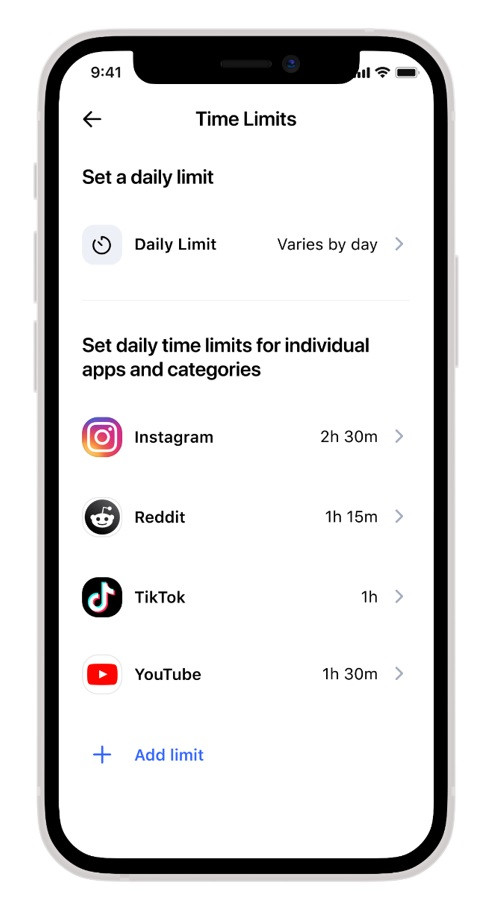Effectiveness of Spy Apps in Regulating Screen Time

The content presented on our website includes listings from companies that provide us with compensation. This compensation impacts the placement, presentation, and order of the listings displayed on our website. Additionally, our site features links to products which may be affiliate links; if you make a purchase through these links, we may earn a commission. Our primary objective is to diligently compare and evaluate the products and services discussed on our site to assist our users effectively. It's important to note that we may not cover every available product or service in the market. Our services are offered at no cost to you. However, should you make a purchase through our affiliate links, we might earn commissions, which could affect the presence and ranking of services and/or products we review.
ParentalControlNow and its affiliates specialize in providing reviews and comparisons of free parental control applications available for 2024. Our content is intended for informational and educational purposes only. We do not offer services or reports used for making decisions governed by the Fair Credit Reporting Act (FCRA), such as those related to consumer reporting. Thus, our website and its services are not to be utilized for any purposes that would require FCRA compliance.

Phones, tablets and computers have become an integral part of our daily lives and parents are increasingly concerned about the amount of time their children spend on electronic devices.
But how effective are these apps? Do they genuinely help in reducing screen time, or do children, with their innate tech-savviness, find ways around them?
Before diving into their effectiveness, it's essential to understand what spy apps are and what they offer. Spy apps, often marketed as parental control tools, allow parents to monitor and sometimes control their child's device usage.
Features might include:
The primary goal is to ensure the child's safety and well-being in the digital realm.
In an era where digital devices dominate our daily routines, parents are constantly seeking tools to ensure their children's online safety and well-being. Spy apps, often seen as the guardians of the digital realm, promise a range of features designed to regulate and monitor screen time. These applications, with their sophisticated algorithms and user-friendly interfaces, seem to offer a solution to the growing concern of excessive screen exposure.
As we delve into the advantages of these apps, we'll explore how they can structure a child's digital interaction, monitor content consumption, and even provide parents with remote control capabilities. Let's uncover the potential benefits of integrating these tools into our parenting strategies:
One of the primary benefits of spy apps is the ability to set specific time limits for device usage. This can help in creating a structured routine for children, ensuring they have balanced screen time and engage in other activities.
One of the leading spy apps renowned for its screen time management capabilities is Aura. This advanced parental control tool empowers you to oversee an unparalleled range of mobile devices, encompassing both phones and tablets, across a vast array of apps and websites.
Beyond just screen time, these apps allow parents to see what content their children are consuming. This can be particularly useful to ensure that children are not exposed to harmful or inappropriate content.
Some advanced spy apps offer remote control features, allowing parents to lock devices or specific apps, ensuring adherence to set screen time limits.
However, like all technological solutions, spy apps are not without their challenges. While they present a facade of comprehensive control and monitoring, there are inherent limitations that parents need to be aware of.
Children, growing up in this digital age, are often more tech-savvy than we give them credit for. Their ability to navigate the digital world can sometimes outpace the very tools designed to guide and guard them.
As we venture into the drawbacks of these apps, we'll discuss the potential pitfalls, from trust issues that may arise between parent and child to the dangers of over-relying on technology.
Let's shed light on the other side of the coin, understanding the challenges that come with using spy apps:
Children today are growing up in a digital world, and many are becoming tech-savvy at a young age. Some kids find ways to bypass the restrictions set by spy apps, either by finding loopholes in the software or by using alternative devices.
Relying heavily on spy apps can lead to trust issues between parents and children. If children feel they are being constantly monitored, they might become secretive or rebellious, leading to a counterproductive outcome.
While spy apps can be a useful tool, they shouldn't be the sole method for regulating screen time. Over-reliance on them can lead parents to neglect open communication and understanding, which are crucial in fostering responsible digital habits.
While spy apps can be effective in regulating screen time to some extent, their success largely depends on how they are used. Relying solely on technology to enforce rules might not be the best approach. Instead, a combination of using spy apps judiciously, coupled with open communication, can yield better results. Discussing the reasons behind screen time limits, the potential dangers of excessive screen usage, and fostering a relationship built on trust can make children more receptive to regulations.
Spy apps can be a valuable tool in a parent's arsenal to regulate screen time. However, their effectiveness is not absolute. Children, especially the tech-savvy ones, might find ways around them. The key lies in balancing technological solutions with open dialogue, ensuring that the goal of reduced and responsible screen time is achieved in a holistic manner.
Spying apps are software applications that allow users to discreetly monitor and gather information from a target device, such as a smartphone or tablet. These apps are typically installed on the target device without the knowledge of the device owner and can record calls, messages, browsing history, and even track the device's location. They are often used for monitoring employees or loved ones for various reasons.
The legality of using spying apps depends on the jurisdiction and the specific circumstances in which they are used. In general, using spying apps without the consent of the person being monitored is illegal and could lead to criminal charges. However, there may be exceptions in certain cases, such as when a parent uses a spying app to monitor their minor child or when an employer monitors their employees' company-issued devices. It is always advisable to consult with a legal expert to understand the specific laws and regulations in your jurisdiction before using a spying app.
Spying apps can offer a wide range of features, depending on the specific app and its intended use. Some common features include:
ParentalControlNow is provided as a free information service. ParentalControlNow receive referral fees from the apps and service providers listed on this website. The Parental app companies presented are listed in no particular order is not a comprehensive list, other Parental Control App providers are available. Offers presented are supplied by the individual companies.
ParentalControlNow use reasonable attempts to accurately provide relevant and up to date information on this website, ParentalControlNow makes no warranties or representations as to its accuracy. ParentalControlNow shall assume no liability for any errors or omissions in the content of this website. The information contained in this website is for illustrative purposes only and does not claim to be comprehensive or to provide legal advice on any specific issue. All information is subject to subsequent variations, without prior notice to our discretion. This does not affect your statutory rights.
Copyright © 2026 Parental Control Now!. All Rights Reserved.

 Read Review
Read Review
 Read Review
Read Review
 Read Review
Read Review
 Read Review
Read Review
 Read Review
Read Review
 Read Review
Read Review
 Read Review
Read Review
 Read Review
Read Review
 Read Review
Read Review
 Read Review
Read Review